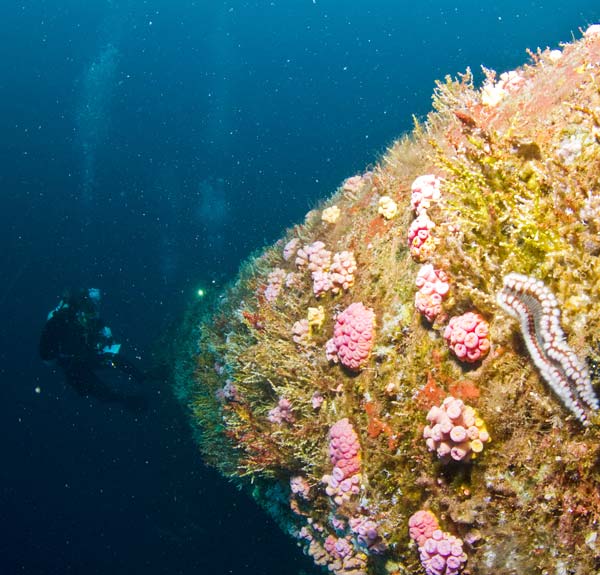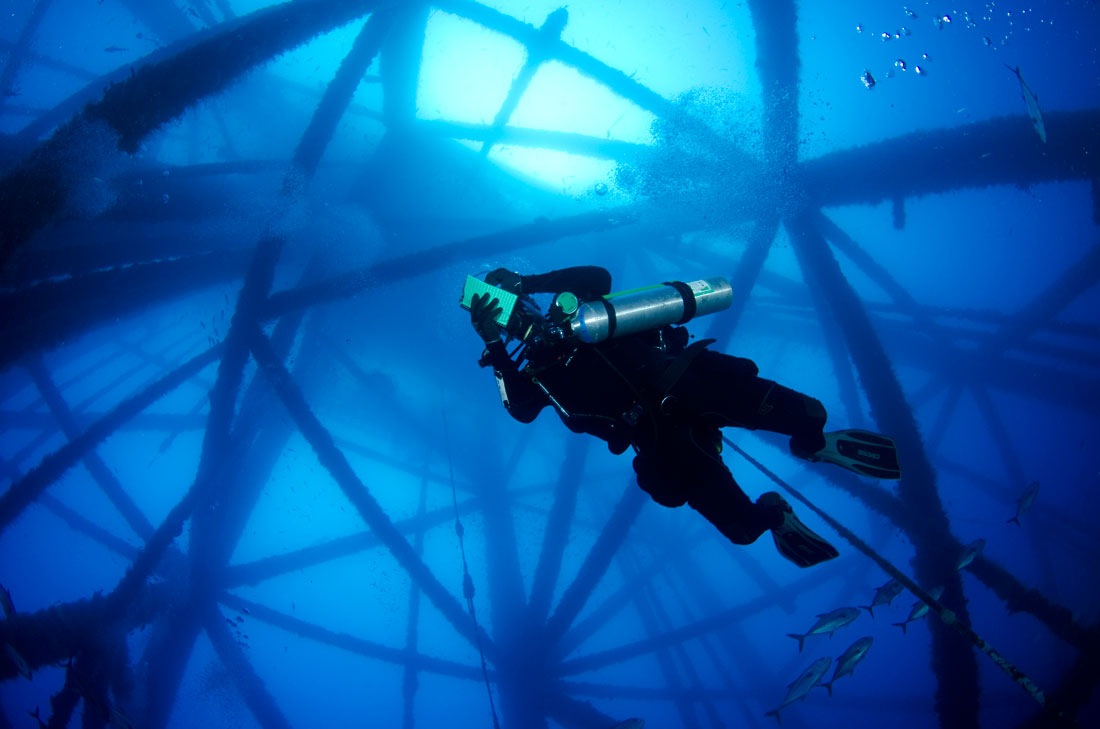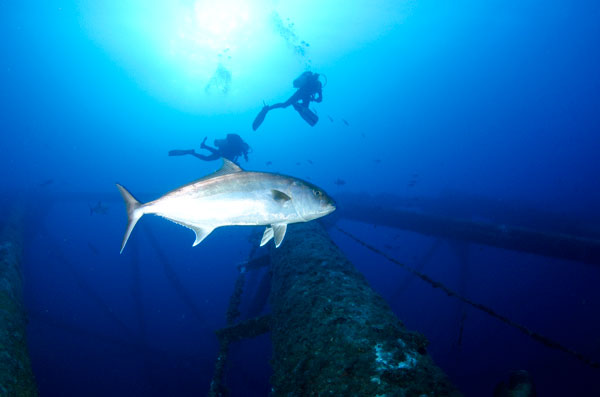Ecology of Artificial Reefs in the NW Gulf of Mexico
Given the increased growth of artificial reef programs in the Gulf of Mexico, basic data on the biomass, community structure, and associated food web is needed. Numerous artificial reefs have been deployed in Texas state waters, yet the impact of artificial reefs on benthic ecosystems is poorly understood and basic biological data is needed to evaluate the functional role of these structures on fish communities. The aim of this research is to use a suite of novel and complementary approaches (acoustics, vertical longline surveys, and dietary tracers) to characterize fish-habitat relationships of predators associated with artificial reefs along the northern coast of Texas in partnership with Texas Parks & Wildlife Department’s Artificial Reef Program. Results from this work will provide important information on the functional role and potential value of artificial reefs as fish habitat to different predators using artificial reefs and standing oil and gas platforms in the NW Gulf of Mexico.


